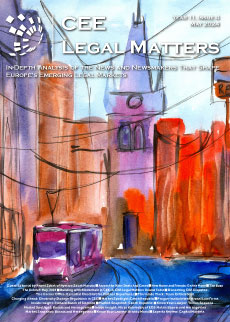Complaints (under Croatian competition law also referred to as “initiatives”), through which different market players may inform the Croatian Competition Agency (CCA) of suspected infringements of competition laws, have been introduced in the Croatian Competition Act back in 2010 and are not a novelty. Complaints have proved to be a useful tool that brought certain competition law violations to the attention of the CCA and helped detect and correct discrepancies in the market.
Kosovo: Kosovo Lowers the Threshold for Concentration Filings
On May 13, 2022, the Assembly of Kosovo passed Law No. 08/L-056 on Protection of Competition, replacing the previous law that had been in effect since October 2010. The new law aims to align the legal framework with EU rules and enhance the efficiency of the Kosovo Competition Authority (KCA). In the context of mergers, acquisitions, and other forms of concentration, the KCA aims to scrutinize concentration filings to assess potential threats to competition in the Kosovo market.
Slovakia: Conditional Merger Clearances in Slovakia – Change of Trend or Anomaly
Despite the quite long-lasting existence of a legislative framework for conditional merger clearances and imposing remedies on undertakings, the Antimonopoly Office of the Slovak Republic (Slovak NCA) has not used this option for many years. We are, however, experiencing a change in the practice of the Slovak NCA. Are we experiencing a change of trend in conditional merger clearances in Slovakia?
Romania: Towards a Wide (Yet Kept in Check) Scope of FDI Screening
On March 30, 2023, Advocate General Tamara Capeta (AG) delivered her Opinion in the Xella Magyarorszag (C‑106/22) case, concerning the interpretation of Regulation (EU) 2019/452 establishing a framework for the screening of foreign direct investments into the Union (FDI Regulation).
Montenegro: The Unsung Enforcement of Montenegro’s Competition Authority
If one were to glance over the website of the Montenegrin Agency for Protection of Competition (Agency), one may reach what will turn out to be a premature conclusion that the Agency is not an overly active enforcer, especially when it comes to merger control-related infringements. One will also not be able to learn much about the Agency’s fining practices. To gain a more realistic picture of its track record with gun-jumping cases, a deeper dive into publicly available data is required. Reasons for this lie mostly with how the Montenegrin legal system for the levying of competition fines is set up.
Allen & Overy Advises Stock Spirits Group on Polmos Bielsko-Niala Merger Proceedings
Allen & Overy has represented the Stock Spirits Group in merger control proceedings before the Polish Competition Authority for the acquisition of Polmos Bielsko-Niala.
Turkey’s Competition Board Sets the Rules for Online Sales Restrictions
Turkey’s Competition Board (the “Board”) rendered two significant decisions last year concerning online sales restrictions that provide a view forward for many undertakings. In its decisions, the Board scrutinised the commitment packages offered by BSH and Arcelik, two of the major small and large household appliances manufacturers in Turkey. The investigations against the companies (the “Investigations”) concerned whether Arcelik and/or BSH violated Article 4 of Law No. 4054 on the Protection of Competition (“Law No. 4054”) by preventing their authorised resellers from selling online and/or interfering with resellers’ resale prices. The Board accepted the commitment packages, which Arcelik and BSH revised after an initial review of the Board, and thus closed the Investigations with respect to the online sales restrictions contemplated by Arcelik and BSH.
































